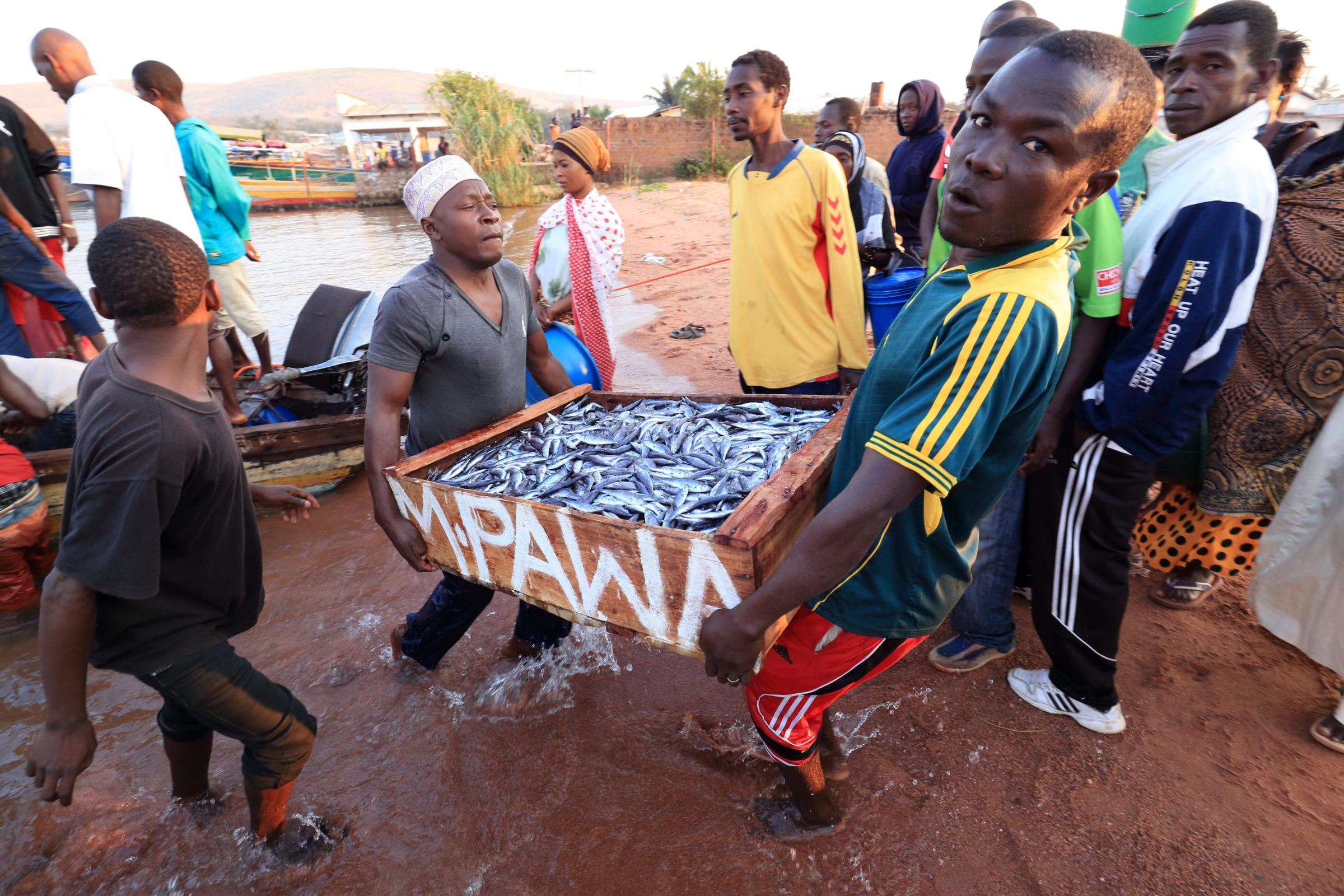Fish to fish from poor countries
One of the places that experiences overfishing of pelagic fish is Mauritania in West Africa. Once, there was plenty of fish in the seas of Mauritania, but today the three largest pelagic species, round and flat sardinella and bonga, are disappearing, according to FAOs latest evaluation.
Bonga, round and flat sardinella are all used for fish meal and fish oil.
“These species are widely overfished”, says Daniel Pauly.
On average, every Mauritian eat between eight and 20 kilos of fish per year, according to FAOs calculations, and many of these fish are sardinella and bonga.
During recent years, these species have been increasingly attractive to an increasing amount of factories located along the coast, east of the countries largest coastal city, Nouadhibou.
The fishermen in Nouadhibou sell a lot of their catch to these factories that make the fishes into fish meal and fish oil, which is exported to Russia, China and the EU. The fish meal and -oil industry is increasing and have made Mauritania into one of West Africa’s largest exporters of pelagic fishes.
“This industry will destroy the Sardinella stock in the region, but not before it will have reduced the local consumption of fish, i.e. affected the incomes and food security of the people in West-Africa”, Daniel Pauly writes in an email to Danwatch.
Danish import from West Africa
Most of the fish meal and – oil imported to Denmark comes from Iceland, Norway and Chile, and the West African countries, Morocco and Mauritania, are number seven on the list. In 2018, Mauritania was the seventh largest supplier of fish oil to Denmark, and Morocco was the seventh largest supplier of fish meal, statistics from the Danish Fisheries Agency show.
We asked Philippe Cury, what companies could do to refrain from affecting food security in West Africa, when they buy fish meal and fish oil from Mauritania and Morocco.
“They should stop”, is his answer in short.
“West Africa has a large problem with food security, and it is serious”.
